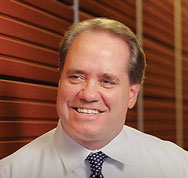Geoffrey Beene Docs

Scott A. Armstrong, MD, PhD
- Specialty:
Cancer Therapeutics & Drug Development; Cell Signaling; Computational Biology; Gene Regulation; Genetics & Genomics; Genome Integrity & Chromosome Biology; Stem Cell Biology
- Institution:
Human Oncology & Pathogenesis Program; Memorial Hospital Research Laboratories; Medicine; Pediatrics
- Other Title:
Director, Memorial Sloan-Kettering Leukemia Center; Vice Chair for Basic and Translational Research, Department of Pediatrics; Grayer Family Chair
- Notes:
The goal of Scott Armstrong's research program is to define genetic and epigenetic programs that control the extensive self-renewal properties associated with leukemia and other cancers. This knowledge is then used to develop rational approaches for potential new therapies. Experiments incorporate the use of sophisticated mouse models of leukemia and the characterization of human leukemia cells. Current active research areas include:
● Identification of developmental pathways that are responsible for cancer stem cell self-renewal and characterization of their specific roles in this process
● Characterization of histone methylation in leukemias, and assessment of the role of specific histone methyltransferases as potential therapeutic targets in leukemia
● Development of mouse models for testing novel therapeutic approaches
● Detailed genomic characterization of human and mouse leukemias through the use of next-generation sequencing approaches
Dr. Armstrong's lab recently identified leukemia stem cells in a model of human leukemia and demonstrated that acute myelogenous leukemia stem cells express a stem cell program in the context of a more differentiated cell type. This finding has important implications for therapeutic approaches that will target cancer stem cells.
His lab also defined changes in chromosome structure as a critical initial step in leukemia development. These findings have prompted a search for therapies that can reverse this process and eradicate leukemia stem cells. Dr Armstrong's work is driven by questions that are of immediate clinical relevance and a number of clinical trials have been developed as a direct result of this work.